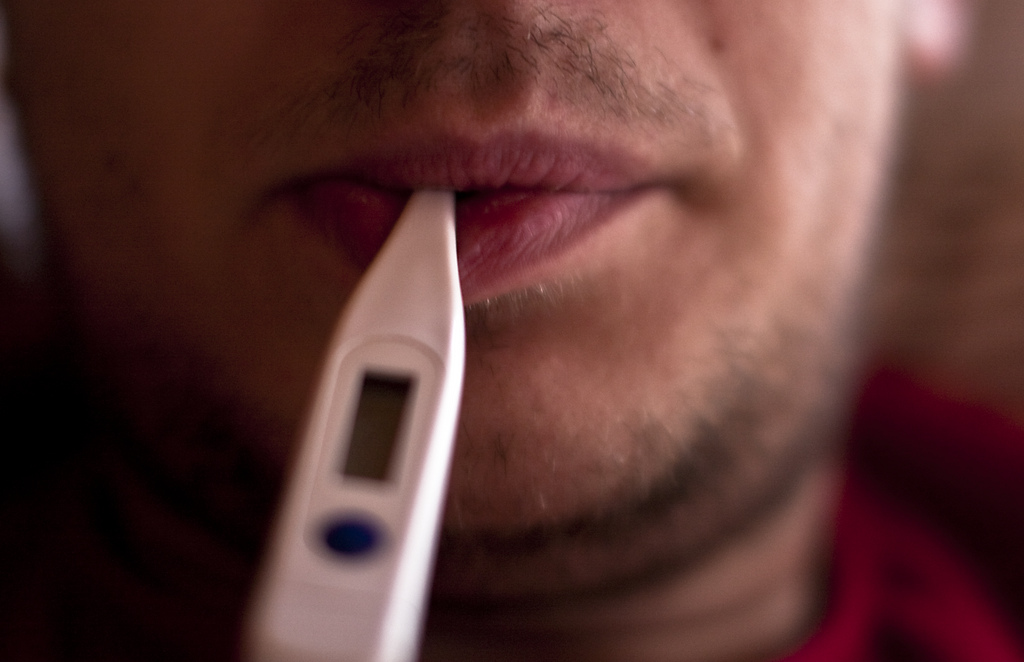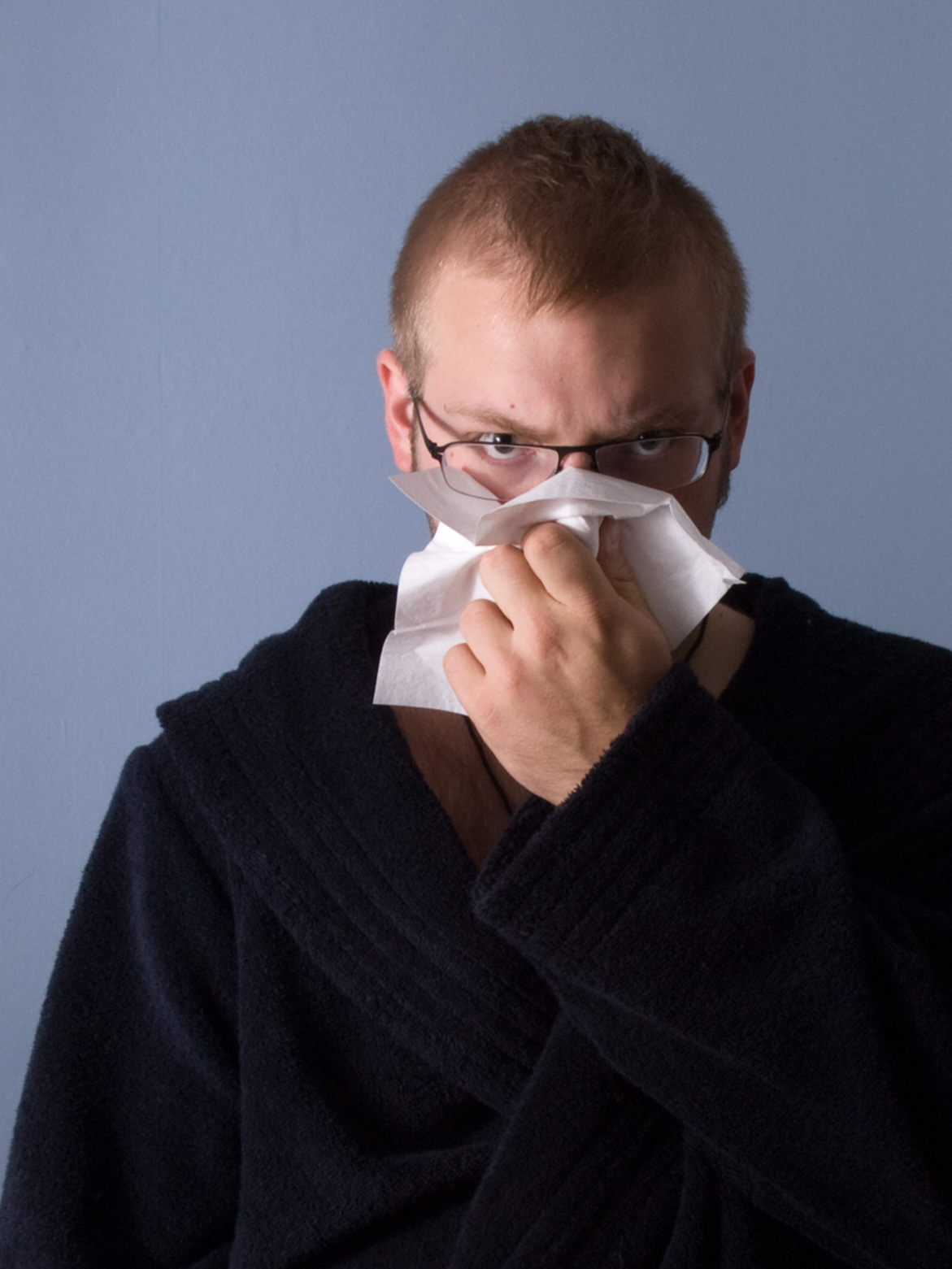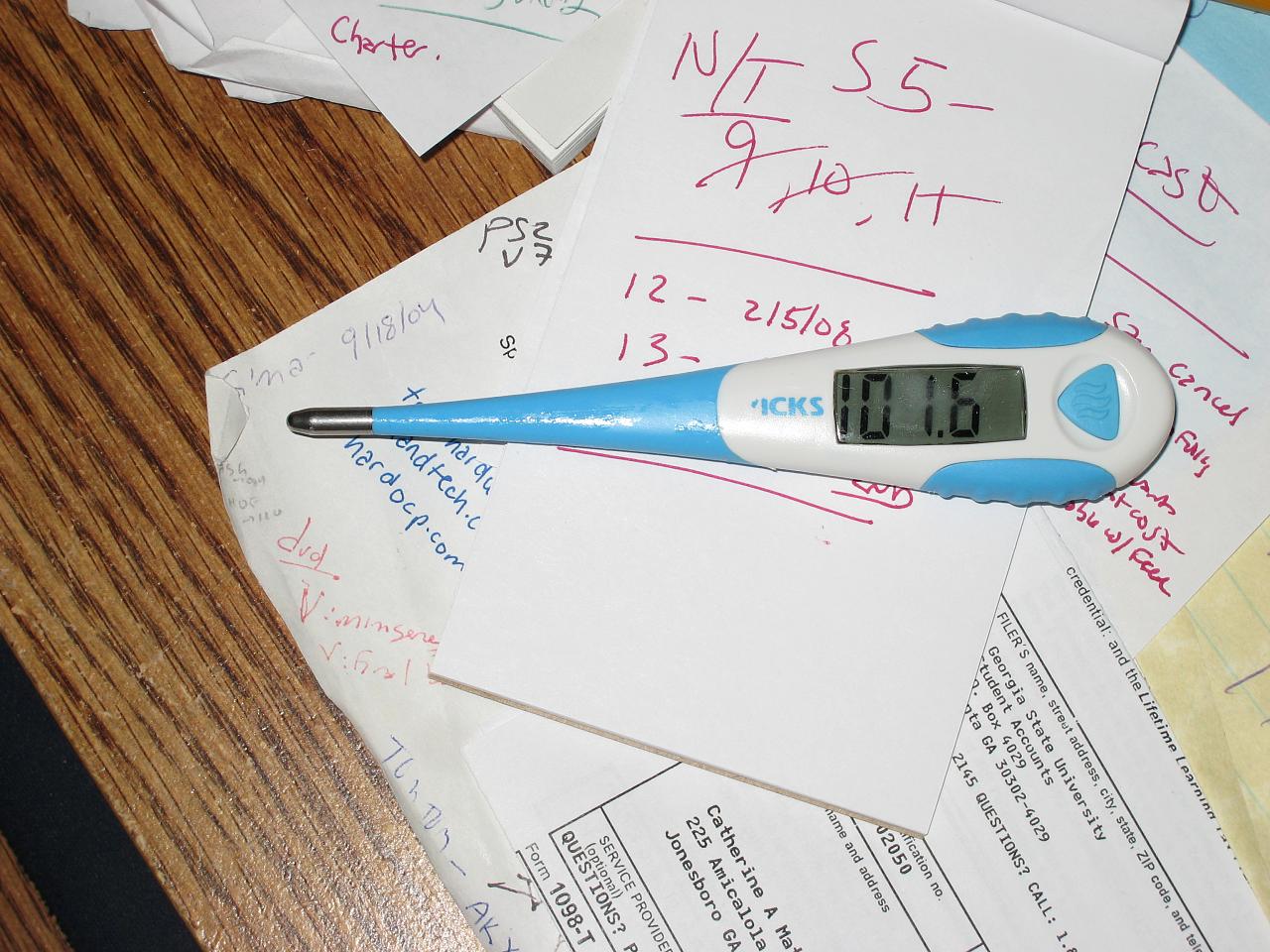Achoo! Posted by hulda on Oct 20, 2016 in Icelandic grammar
Autumn is here, which means the flu season is here as well. Now’s the time when students going to class will find their classes abruptly canceled with only a note “Tíminn fellur niður vegna veikinda” (= the class is canceled due to illness) stuck to the door.
The lucky ones may have seen an e-mail notification, but since those typically arrive about an hour before class is due to begin, the students who have to use the less-than-ideal public transport will probably already be running for their bus. I remember from my time of studies a few years back that more often than not most of the class would meet at the closed door, grumble a bit and then hit the uni cafeteria for an impromptu group study. It was just one of those typical things in the life of a university student in Iceland.
On the positive side the Icelandic university is understanding about illnesses and deadlines etc. can always be negotiated with the professor. Same goes for the working life, if you get ill you’re ill and should stay at home. Obviously, mean employers are in every country, but the general attitude in Iceland is that ill people should stay at home to rest and get better faster, because working while sick will affect the quality of work. Besides the thought that one sick person will spread the bug to others sits tight. Two people may be infected on the same day, but if one develops symptoms a day earlier than the other the other will immediately blame them when their own symptoms appear.
Let’s look at some related vocabulary, because right now all the following are totally in fashion.
Mér liður illa = I’m not well. This one is often used if you’re feeling like throwing up, but it can be used to just say you’re feeling badly. You can also use it to say you’re not mentally feeling well. Mér er illt = I’m feeling pain. Mér er illt í hálsinum = I have pain in my throat.
Ég er lasinn/lasin. = I’m ill, I’m not feeling well. Lasinn goes for men, lasin for women, at the moment nonbinary people tend to pick the gender option they like best since no official consensus has yet been reached on which gender to use if the binary ones don’t apply. If in doubt, as the person, never try to automatically use the neuter gender option, some people are ok with it but many have stated they do not want to be spoken of as “objects or children”.
However, it’s entirely acceptable to use the neuter when describing that a child is ill since the word barn (= child) is neuter! Barnið er lasið = the child is ill, barnið mitt er lasið = my child is ill. If the child has a name or you’re talking of a son/daughter, boy/girl, then the gendered adjectives apply again.
Veikur, veik, veikt = ill. This one’s pretty synonymous to lasinn/lasin. There’s some nuance difference but nothing definite or specific, far as I know. Always keep an eye on what noun is attached: if you’re using a male noun the gender of the person you’re talking about doesn’t matter. Kennarinn er veikur = the teacher is ill, even if the teacher is a woman.
Veikindi (N) = illness. There’s no singular form to this noun, only the plural option exists, and if you need to say “because of illness” you use the pronoun vegna. Vegna demands genitive to follow it, which is why the final form is “vegna veikinda”.
Hósti = cough (noun, M). Hósta, að hósta = to cough (verb).
Ég er með nefrennsli = my nose is running. It’s typical to use the form “að vera med” to describe what symptoms you’re having.
Ég er með hósta = I have a cough. Ég er með mikinn hósta = I have a very bad cough.
Ég er með höfuðverk = I have a headache.
Hiti (M) = fever.
Ég er með hita = I have a fever. You can easily add to this how high your temperature is: Ég er með X stiga hita = I have X fever. Icelanders use Celcius so you should probably do that too or people will panic. 😀 (They wouldn’t really, they’d just be really curious how it’s possible to have 100° body temperature and still be walking around instead of violently boiling away.)
Kvef (N) = a cold. Að fá kvef = to catch cold. Note that if you’re describing you caught a bug you use the verb að fá: ég fékk kvef í gær og ég er með kvef í dag = I caught a cold yesterday and I have a cold today.
Að hnerra = to sneeze. Hnerri (M) = a sneeze.
Velgja (F) = nausea. Ógleði (F) = nausea. Ógleði only has singular form, velgja has a plural as well.
Að valda velgju/ógleði = nauseate.
Að spýja/kasta upp/æla = to vomit. Ég kastaði upp = I threw up. Ég ældi blóði = I threw up blood (go see a doctor immediately if this happens).
Inflúensa = influenza. The serious one, if you catch this one you should see a doctor. Is often shortened to flensa = flu. You can get vaccinated against flu every year, it’s not expensive and is recommended to people who are very old, ill or have respiratory ailments.
Likewise going to the doctor is not expensive in Iceland, even if you’re a foreigner and haven’t yet lived in the country for six months, so always rather be safe than sorry. Don’t worry about language barriers either if you’re just going to visit Iceland. Healthcare staff, doctors, nurses, everyone speaks fluent English.
And finally:
Mér líður betur = I’m feeling better.
Stay healthy, everyone!

Build vocabulary, practice pronunciation, and more with Transparent Language Online. Available anytime, anywhere, on any device.
About the Author: hulda
Hi, I'm Hulda, originally Finnish but now living in the suburbs of Reykjavík. I'm here to help you in any way I can if you're considering learning Icelandic. Nice to meet you!






